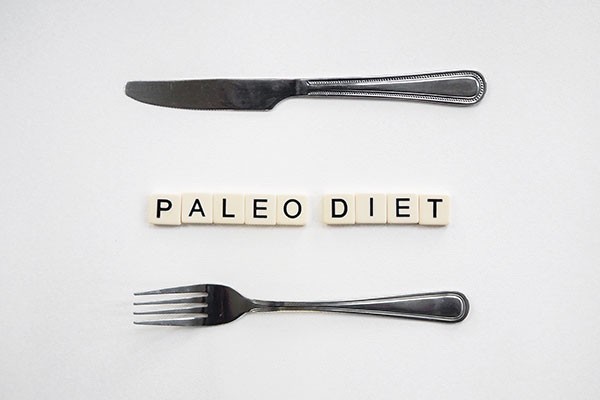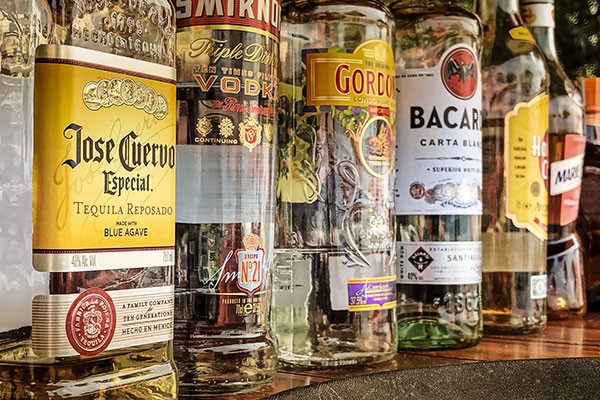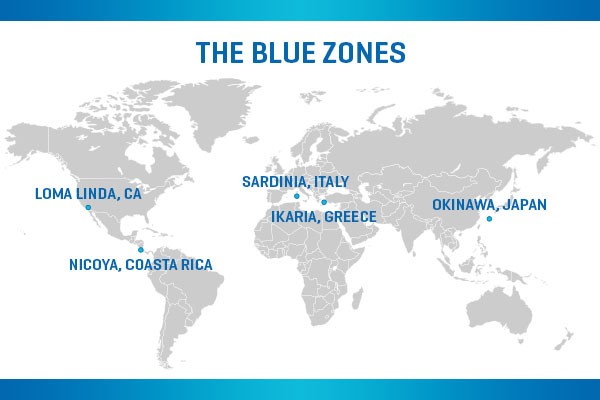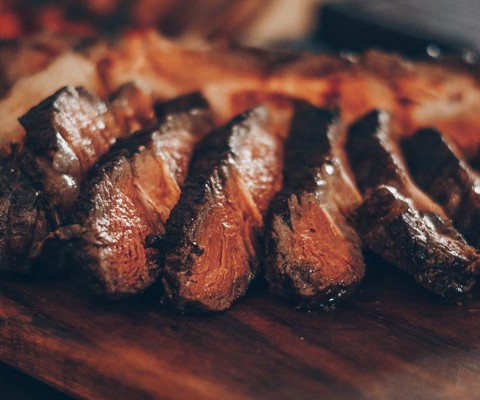Is the Paleo Diet Worth Following?

The paleo era
Let's first establish when this era began.
The general consensus is that the Paleolithic period started when the earliest estimated use of stone tools came (~2.5 million years ago) until about 10,000 years ago.
And 10,000 years ago is when the Agricultural Revolution began, whereby grain production (those evil carbohydrates) really took off.
And this is one of the major gripes those behind the paleo diet have.
The diseases we all face today, they say, are apparently because of agriculture.
And we’re led to believe our bodies haven't adapted to consume these "new" (called Neolithic) foods, without them damaging our health in the process.
But can they back this up with evidence?
Well, before we dive into that, let's take a look at what the paleo diet actually is.
Whats foods are allowed on the paleo diet?
- Meat
- Eggs
- Poultry
- Fish
- Fruit
- Vegetables (except tomatoes, potatoes, & eggplants)
- Nuts
- Seeds
What foods aren't allowed on the paleo diet?
- Grains and legumes
- Milk (and milk products)
- Refined/added sugars
- High omega-6, refined or hydrogenated vegetable oils
- Nightshade vegetables such as tomatoes, potatoes, & eggplant
- Added salt
- Coffee & alcohol
Ok, so now you know what Paleo proponents say you can and can't eat.

So let's now look at more of their claims and what science says.
The truth about the paleo diet
Firstly, all of us are moving less. We can order food from the palms of our hands to our door, don't need to go to the shops anymore to buy things, and we can even turn the lights on and off from our smartphones.
So it's pretty hard to start blaming agriculture for extra weight gained (and thus diseases occurring) with any conviction.
Also, a review in 2021 found technology has meant a lot of us are exercising less. But anyone could have told you that.
Other studies show we burn 142 calories less at work than we did in the 60s.
And if you factor that in with a roughly 445 daily calorie increase we've had since then, we're looking at a 587 calorie surplus. That’s a lot of extra calories.
But it's hardly surprising, is it?
Where we once would walk to the post office to collect the mail, we now get it via email from the click of a button and the sip of something hot.
Not to mention the level of automation we have today (and I'm sure you're thinking of 100 other things that make us burn less calories at work!).
Did the caveman really not eat carbohydrates?
Starch granules have been found on paleo tools from Mozambique, believed to have started at least 105,000 years ago.
Other research has found starch granules on the surfaces of the caveman’s grinding tools from as far as northeastern Europe to the central Mediterranean.
What's more, plant food processing, and maybe even the production of flour was found to be across Europe from at least 30,000 years ago.
So the claims that the caveman didn't eat carbohydrates back then isn't supported by research.
What's more, there are actually next to zero accurate records of what they DID eat.
There was never a study done on them.
But where there IS research is that whole grain and legume consumption can help us with improved blood lipid profile, glucose control, reduced risk of stroke & coronary heart disease, and reduction of inflammation.
These of course are the things paleo proponents say we must omit.
Then there's the claim from paleo followers that grains cause inflammation.
However, research shows that 3-4 servings per day from either refined or whole grains reveal no inflammatory effects.
The healthiest people in the world
The following facts also damage their argument.
Research has uncovered what are referred to as "the Blue Zones," which are places people consistently live to be over 100 years old.
Take a look at the Blue Zones below:

And what do those in the Blue Zones eat?
Ikaria, Greece: Lots of olive oil, fruits, vegetables (wild greens), whole grains, fruit and a little fish. Goat milk and wine (about 2 glasses per day). Coffee and tea are consumed regularly.
Nicoya, Costa Rica: Black beans, white rice, corn tortillas, squash, eggs (mostly fried), and fruit. More meat (mainly chicken & pork) and fruit is consumed compared to other blue zones. Their water is very high in minerals. Coffee is consumed daily.
Sardinia, Italy: Plant-dominant diet, lots of dark red wine, fava beans, and barley. Goat milk & goat cheese. Meat intake (lamb, lean pork, oily fish, and shellfish) is not that regular. Coffee is consumed daily.
Seventh-Day Adventists in Loma Linda, California: Vegetarian diet rich in beans & nuts, low EPA/DHA intake, high intake of the plant-derived omega-6 fatty acid, no alcohol.
Okinawa, Japan: Plant-dominant diet. Lots of seaweed is eaten. Regularly eaten foods are sweet potatoes, soy beans & soy products like tofu & miso, white rice, and tea. Raw sugar eaten as snacks. Small amount of pork and fish eaten. The diet is very high-carb, very low-fat. Basically no eggs or dairy.
So we can see there's a lot of wholefoods eaten in the Blue Zones: the diets are largely plant-based, and there's not much binging.
Interestingly, carbohydrates are the most consumed macronutrient, which of course, flies in the face of the paleo diet guidelines and recommendations.
Also, 3 of the 5 zones regularly drink coffee, and 4 of the 5 drink alcohol regularly.

And ALL 5 consume grains and legumes.
And last but not least, none of them specifically follow the paleo diet.
Doesn’t leave the paleo diet with much of a leg to stand on, does it?
The bottom line on the paleo diet
Is that there's not a lot of support for the paleo diet from a scientific point of view. There's no research into the diets of cavemen, and we know that they did consume carbohydrates. Blaming agriculture and the influx of grains for diseases totally ignores how we're now burning fewer calories as a result of the digital revolution.
Moreover, the blue zones, represent the zones where people live until the age of 100, reveal none follow a paleo diet, and consume the foods the paleo diet suggests we omit (like alcohol and carbohydrates).
Further Paleo Reading and Products
Looking to educate yourself further on Paleo supplements? Check out
Or check out our full range of Paleo Safe Supplements to buy online.
References:
- Woessner MN, Tacey A, Levinger-Limor A, Parker AG, Levinger P, Levinger I. The Evolution of Technology and Physical Inactivity: The Good, the Bad, and the Way Forward. Front Public Health. 2021 May 28;9:655491. doi: 10.3389/fpubh.2021.655491. PMID: 34123989; PMCID: PMC8193221.
- Mercader J. Mozambican grass seed consumption during the Middle Stone Age. Science. 2009 Dec 18;326(5960):1680-3. doi: 10.1126/science.1173966. PMID: 20019285.
- Revedin A, et al. Thirty thousand-year-old evidence of plant food processing. Proc Natl Acad Sci U S A. 2010 Nov 2;107(44):18815-9. doi: 10.1073/pnas.1006993107. Epub 2010 Oct 18.
- Buettner D, Skemp S. Blue Zones: Lessons From the World's Longest Lived. Am J Lifestyle Med. 2016 Jul 7;10(5):318-321. doi: 10.1177/1559827616637066. PMID: 30202288; PMCID: PMC6125071.
- https://www.alanaragonblog.com/wp-content/uploads/2013/07/Paleo-Diet-Claims-Vs-Evidence.pdf
- Lindeberg S. Palaeolithic diet (“stone age” diet). Scandinavian Journal of Food & Nutrition. 2005;49(2): 75–7. 2.
- Cordain L, et al. Origins and evolution of the Western diet: health implications for the 21st century. Am J Clin Nutr. 2005 Feb;81(2):341-54.
- Church TS, et al. Trends over 5 decades in U.S. occupation-related physical activity and their associations with obesity. PLoS One. 2011;6(5):e19657.
- Cordain L, Brand-Miller J, Eaton SB, et al. Plant-animal subsistence ratios and macronutrient energy estimations in worldwide hunter-gatherers. Am J Clin Nutr. 2000;71:682–92.
- Bazzano LA, et al. Non-soy legume consumption lowers cholesterol levels: a meta-analysis of randomized controlled trials. NutrMetab Cardiovasc Dis. 2011 Feb;21(2):94-103.
- Katcher HI, et al. The effects of a whole grain-enriched hypocaloric diet on cardiovascular disease risk factors in men and women with metabolic syndrome. Am J Clin Nutr. 2008 Jan;87(1):79-90. 30.
- Andersson A, et al. Whole-grain foods do not affect insulin sensitivity or markers of lipid peroxidation and inflammation in healthy, moderately overweight subjects. J Nutr. 2007 Jun;137(6):1401-7. 31.
- Tighe P, et al. Effect of increased consumption of whole-grain foods on blood pressure and other cardiovascular risk markers in healthy middle-aged persons: a randomized controlled trial. Am J Clin Nutr. 2010 Oct;92(4):733- 40. 32.
- Brownlee IA, et al. Markers of cardiovascular risk are not changed by increased whole-grain intake: the WHOLEheart study, a randomised, controlled dietary intervention. Br J Nutr. 2010 Jul;104(1):125-34.
- Images unsplash.com: 1 totalshape.com, 2, 4
Related Blogs

Nine Easy Ways to Get More Vegetables Into Your Diet
Posted by Nicole Frain
Estimated reading time: 8 minutes

Diets that work? Which diet is best for me?
Posted by Bulk Nutrients
Estimated reading time: 17 minutes

What's the rage with the carnivore diet? Is it recommended?
Posted by Bulk Nutrients
Estimated reading time: 7 minutes














































